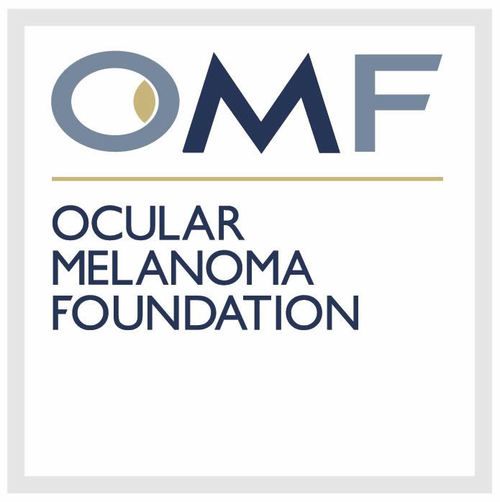Adjuvant Therapy
Adjuvant therapy is any treatment done after or in addition to the primary treatment (i.e. after plaque treatment or enucleation) to decrease the chance of the melanoma returning or spreading.
Radiation retinopathy is a common side effect of the successful treatment for choroidal melanomas. Usually this occurs 2-3 years after treatment, sometimes sooner. The manifestation is swelling, bleeding, or leakage into the retina which can result in decreased vision.
A promising treatment for prevention of these radiation side effects and maintenance of visual acuity is the use of injections of medicines that block a signal made by the retina that promotes this retinopathy (called VEGF). This is given by an injection into the eye and is used in patients with macular degeneration or diabetic disease—a similar process. This is given in your ophthalmologist's office.
Radiation retinopathy is a common side effect of the successful treatment for choroidal melanomas. Usually this occurs 2-3 years after treatment, sometimes sooner. The manifestation is swelling, bleeding, or leakage into the retina which can result in decreased vision.
A promising treatment for prevention of these radiation side effects and maintenance of visual acuity is the use of injections of medicines that block a signal made by the retina that promotes this retinopathy (called VEGF). This is given by an injection into the eye and is used in patients with macular degeneration or diabetic disease—a similar process. This is given in your ophthalmologist's office.
Avastin Shots
Bevacizumab (Avastin®) is the most commonly used medicine. Avastin is in a class of medications called antiangiogenic agents. They work by stopping the formation of blood vessels that bring oxygen and nutrients to tumors.
Typically when Avastin is prescribed by your doctor, injections can be given as frequently as once a month, then if successful in controlling the swelling, the frequency can be spaced out a bit (every 6, 8, 10+ weeks in time). If the treatment is successful in controlling the swelling and the vision is stabilized or improving, we continue the treatments as long as possible. It could be for some time (years sometimes). That seems like a really long time, but the goal is to keep the vision as good as it can be for as long as possible. Without these injections, vision outcomes are often poor over time.
Avastin is also interesting because of a potential dual use: in addition to treating (with mixed results) macular edema due to radiation retinopathy it may potentially be used to treat the primary uveal melanoma (UM) or its metastases.
Typically when Avastin is prescribed by your doctor, injections can be given as frequently as once a month, then if successful in controlling the swelling, the frequency can be spaced out a bit (every 6, 8, 10+ weeks in time). If the treatment is successful in controlling the swelling and the vision is stabilized or improving, we continue the treatments as long as possible. It could be for some time (years sometimes). That seems like a really long time, but the goal is to keep the vision as good as it can be for as long as possible. Without these injections, vision outcomes are often poor over time.
Avastin is also interesting because of a potential dual use: in addition to treating (with mixed results) macular edema due to radiation retinopathy it may potentially be used to treat the primary uveal melanoma (UM) or its metastases.
Dive Deeper
The Cleveland Clinic's Arun Singh has an interesting paper from 2014 on the topic of adjuvant therapies here.
And a more recent paper looks at the Adjuvant crizotinib in high-risk uveal melanoma following definitive therapy. Unfortunately, there was no increase in survival rate for the treated patients.
And a more recent paper looks at the Adjuvant crizotinib in high-risk uveal melanoma following definitive therapy. Unfortunately, there was no increase in survival rate for the treated patients.
Introduction
Primary Tumor Treatments
Radiation Treatments
Enucleation / Resection
> Adjuvant Therapy
Metastatic Disease Treatments
Targeted Radiation
Transarterial Chemotherapy
Other Liver Treatments
Systemic Treatments
Clinical Trials
Frontier Treatments
Diet & Lifestyle
Living with OM
Primary Tumor Treatments
Radiation Treatments
Enucleation / Resection
> Adjuvant Therapy
Metastatic Disease Treatments
Targeted Radiation
Transarterial Chemotherapy
Other Liver Treatments
Systemic Treatments
Clinical Trials
Frontier Treatments
Diet & Lifestyle
Living with OM
